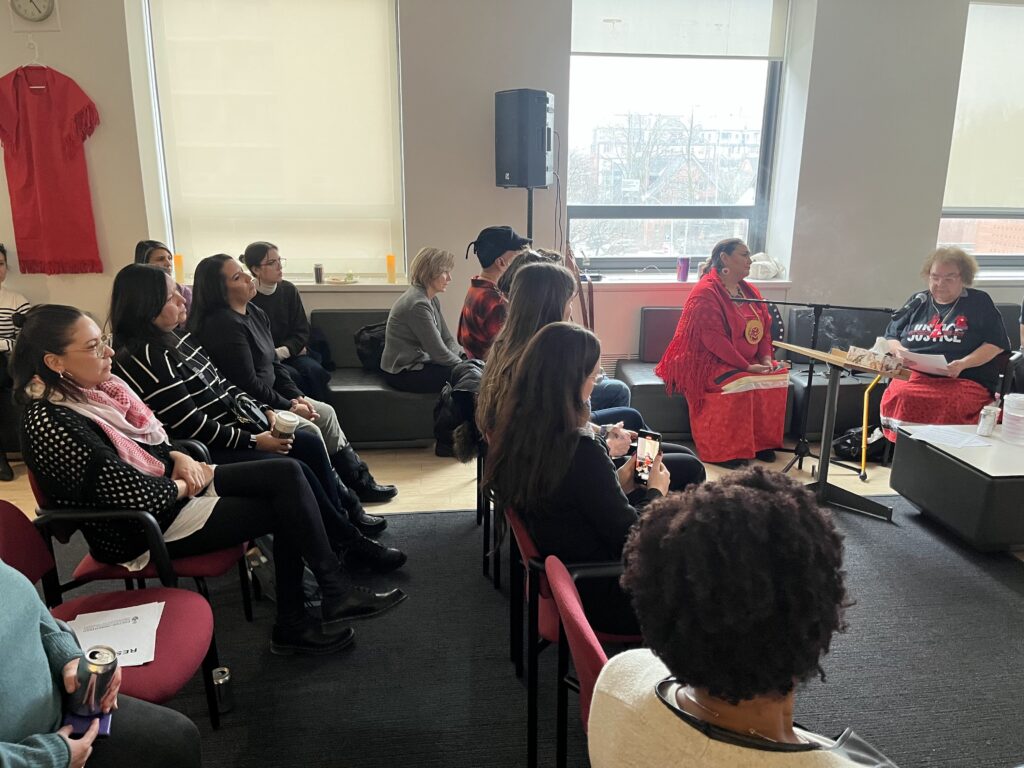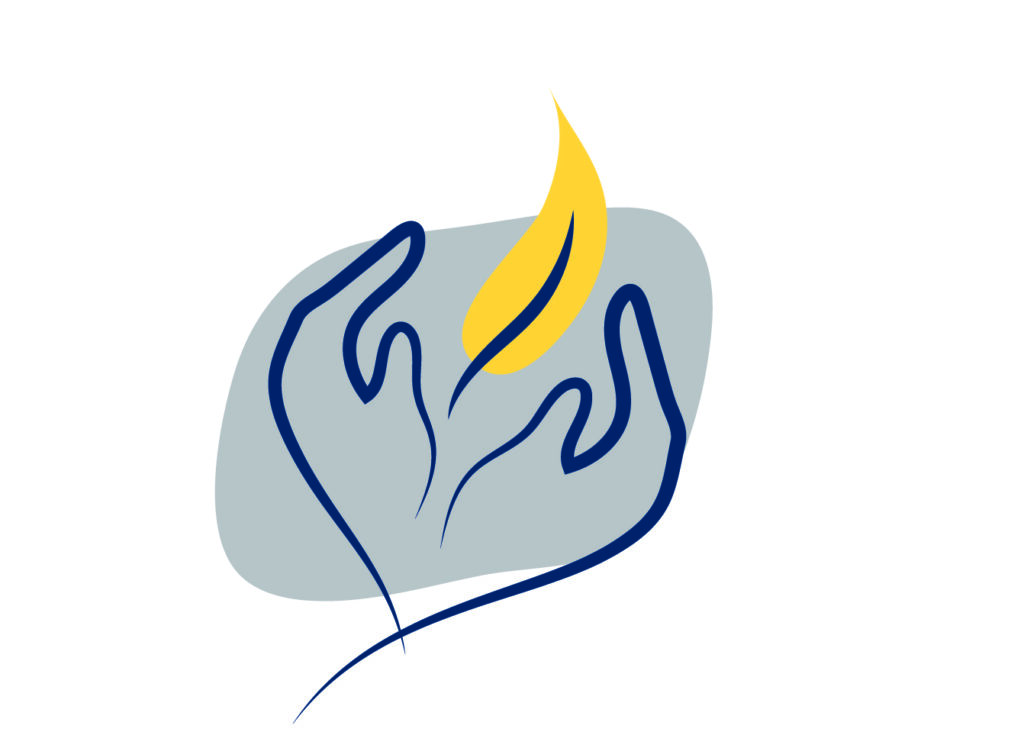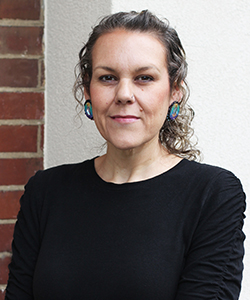2024-2025 Year in Review: Truth & reconciliation

From the Shades of Our Sisters exhibit, presented at FIFSW on February 3, 2025. Learn more about this event, below.
An enduring commitment
FIFSW’s work towards Truth and Reconciliation is essential to our mission. Our efforts are guided by the University of Toronto’s 34 Calls to Action (developed in response to the Truth and Reconciliation Commission of Canada) and rooted in the seven core professional values outlined in the Canadian Association of Social Work’s Code of Ethics, Values and Guiding Principles.
Below is an overview of initiatives that took place in the 2024-2025 academic year to further our commitment to this work.
Earlier this year, FIFSW invited applications from Indigenous scholars and conducted a search for a full-time tenured position in the area of Indigenous Social Work. We’re hoping this fall we will be able to announce a successful candidate who will be appointed as the inaugural Lee Wu Kee Ming Chair in Indigenous Social Work. This position is part of the University of Toronto and the Factor-Inwentash Faculty of Social Work’s response to the calls to action in Canada’s Truth and Reconciliation Commission (TRC) report.
Great news for Indigenous students pursuing social work education! This past year the Faculty was awarded over $180,000 through the University of Toronto’s Access Strategy & Partnerships Office Access Programs University Fund. This significant funding will be invested over the next two years to improve access and provide enhanced support for Indigenous students in our Master of Social Work programs.
The initiative reflects our ongoing commitment to creating more inclusive pathways for Indigenous learners and ensuring they have the resources needed to succeed in their graduate studies.
In January, thanks to the support the Faculty received from this grant, we announced a new role: the Indigenous Student Access Project Administrator. This position was established to support Indigenous students throughout their journey in the MSW program.
“At its heart, the work is about listening deeply to gain a better understanding of how Indigenous students are experiencing the program, and working to ensure they feel seen, supported, and valued,” says Lauren Akbar who has taken on the new role.
The Indigenous Student Access Project Administrator helps create meaningful spaces for connection, offering events, peer gatherings, mentorship, and opportunities to build relationships with faculty, staff, and fellow students. It also supports Indigenous students in navigating and accessing resources, by advocating for their needs, and by working to remove systemic barriers in admissions and beyond. Grounded in community and care, Lauren aims to foster a stronger sense of belonging and representation to Indigenous students at the Faculty can thrive.
Lauren has over 15 years of experience working with Indigenous children, youth, families, and communities across Turtle Island with a focus on children and youth’s mental health and well-being, youth suicide, trauma and intergenerational trauma, and youth leadership and resiliency. Prior to accepting this position, Lauren was the Coordinator of FIFSW’s Indigenous Trauma and Resiliency field of study.

Joyce Carpenter (wearing a black t-shirt) speaks to the audience at the Shades of Our Sisters screening in FIFSW’s Student Lounge. On February 3rd, FIFSW was honoured to welcome Joyce Carpenter to share the story of her daughter, Patricia Carpenter, who was taken from her in 1992. Joyce is a co-creator of Shade of Our Sisters, a project developed by the families of Missing and Murdered Indigenous Women, Girls, Transgender, and Gender-Diverse+ peoples (MMIWGT2S+). An exhibit and online experience, the project pays tribute to the memory of loved ones and the impact of their tragic loss. Audience members engaging with the project are invited to share in the families’ grief, love, and memories and participate in urging Canadians to recognize the injustice of this national tragedy. FIFSW’s Shades of Our Sisters event included a screening of a short film about Patricia’s life, created by Shades of Our Sisters producers and team. The screening was followed by moving reflections from Patricia’s mother Joyce.
Indigenizing the Curriculum workshops
The ADA Office hosted Indigenizing the Curriculum workshops for faculty, sessional lecturers and course instructors. Facilitated by Andrew Bomberry, Special Project Officer for Indigenous Curriculum and Education at U of T’s Office of Indigenous Initiatives, participants discussed what it means to Indigenize their courses, looked at some of the sources for Indigenous epistemologies, and explored the implications for how these ways of knowing and doing interact with different subject disciplines. In the end, participants applied an Indigenous framework for Indigenizing curriculum to their own syllabi.
lndigenous Learning Workshop now a requirement for MSW students
An Indigenous Learning Workshop was added as an MSW program requirement for students entering in 2025. Like the workshops for faculty members, described above, this mandatory workshop for students has also been developed and will be delivered by Andrew Bomberry, Special Project Officer for Indigenous Curriculum and Education at U of T’s Office of Indigenous Initiatives.
In December, FIFSW was thrilled to welcome Julie Ann Shepard to the Faculty as the new Coordinator of is Master of Social Work – Indigenous Trauma and Resiliency (ITR) field of study. Established in 2016 in partnership with the Ontario Federation of Indigenous Friendship Centres (OFIFC) and the Middelton- Moz Institute, the ITR field of study is a unique program dedicated to preparing advanced social work professionals to work with individuals, families and communities who have been affected by historical and generational trauma.
A creative spirit with a strong passion for art, music, activism, and travel, Julie Ann is of mixed heritage, including Mi’kmaw and settler (French, English, Irish, and African), and holds both an Honours Bachelor of Arts and a Master of Social Work from the University of Toronto. She has held various positions at U of T, including Coordinator of Aboriginal Initiatives, where she supported the University’s commitment to reconciliation, and Coordinator of Academic Supports at First Nations House – Indigenous Student Services, where she helped Indigenous students at U of T thrive.
In her most recent role as Manager of Indigenous Initiatives at the Faculty of Law, Julie Ann supported both students and the Elder in Residence, by fostering enriching experiences and spaces for learning, reflection, and community-building, including opportunities for land-based learning.
This year, in collaboration with First Nations House, FIFSW was honoured to contribute to Hart House’s National Day for Truth and Reconciliation ceremony. Our partnership allowed us to deepen our understanding of the diverse ways in which communities, including non-Indigenous individuals, experience the day’s significance. Recognizing that during past events some non-Indigenous attendees have sought comfort and support from Indigenous staff and community members, FIFSW worked with organizers to create spaces for healing and care open to non-Indigenous participants. This approach aimed to support Indigenous colleagues in focusing on their own grief, healing, and ceremonial practices.


